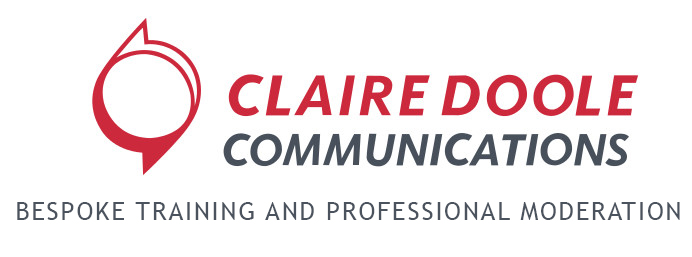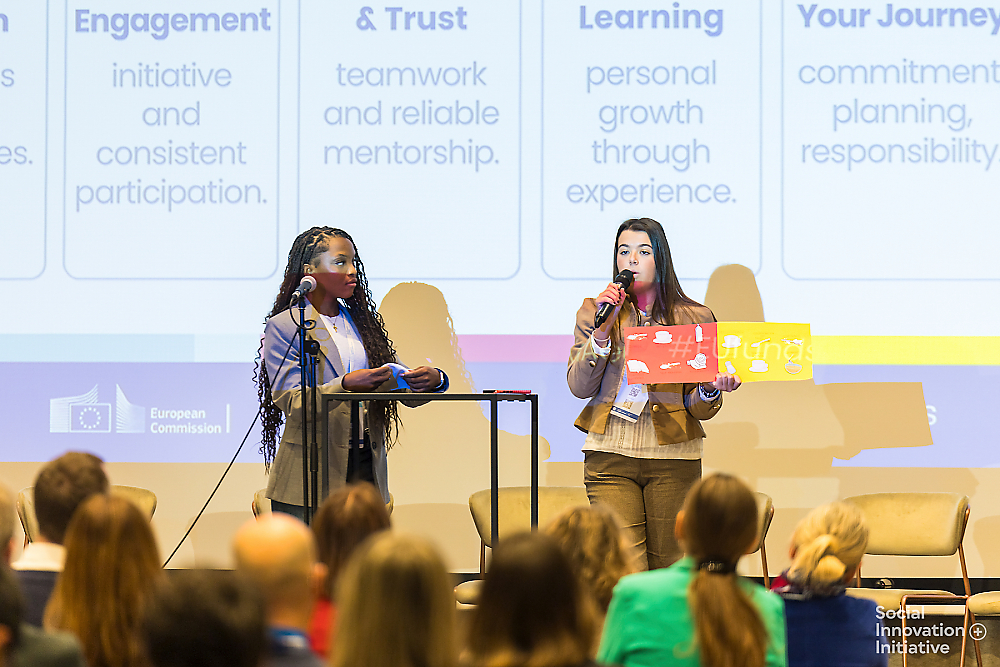
by Claire Doole | Jan 12, 2026 | Blog
Organising an event should be like cooking a great meal: a careful balance of technical know-how and creative flair. Get the mix right and your guests leave satisfied, inspired, and possibly asking for seconds. Get it wrong… and you’re serving up something bland, or overcooked.
Sadly, many organisers fail to find the right ingredients. They over-season with PowerPoint presentations, dilute the panels with speakers who lack incisive insights, and wonder why the audience sneaks out before dessert.
But last year, the organisers of one of the most enjoyable events I moderated absolutely nailed the recipe. They served up the right blend of policy substance and creative flair.
So, let me share what made this event so deliciously satisfying.
The Dish: The ALMA Journey
The ALMA (Aim, Learn, Master, Achieve) journey celebrated the achievements of young people not in employment, education, or training who had taken part in a transformative European Commission programme, working for a short period in another European country. In short: a meaningful initiative, a powerful story — and the perfect base ingredient.
Here, in 8 easy steps, is their recipe for success.
rong>Ingredients & Method
1) Keep a clear head and focus. The organisers kept the spotlight firmly on the added value of ALMA from the young people’s perspective. They weren’t garnish — they were the main course.
2) Do what it says on the tin. The title “The ALMA Journey:results, reflections and the road ahead” matched the content.
3) Add the policy ingredients — sparingly. Panels, keynotes, presentations, fireside chats:all essential staples. But served short and sweet. Think tapas, not an all-you-can-eat buffet of slides.
4) Sprinkle generously with humour. Two young Poles brought the house down with a stand-up comedy routine about their ALMA experience. Proof that laughter is not only allowed at policy events — it’s an essential ingredient
5) Combine insights with creativity. Two young Spaniards offered their own six-step recipe for success: courage, active engagement, collaboration, continuous learning, commitment, and a positive mindset. Nutritious and inspiring.
6) Stir in time for interaction and networking. The audience moved between sessions where project operators from across Europe shared successes, challenges, and future visions. It is important after all not to leave the audience seated for too long!
7) Appeal to the senses. A Portuguese teenager had the audience on their feet, singing about how those on the ALMA journey are “the heroes of themselves — body and soul.” It was the icing on the cake!
8) Garnish with professional moderators. Moderators who seamlessly linked sessions, engaged the audience, and — crucially — kept everything on time. Because even the best meal loses its appeal if it drags on too long.
Chef’s Tip
Like all good recipes, this one works best with preparation and practice. The organisers left no stone unturned:briefing calls with panellists, clear roles for moderators, and no assumptions that things would “just work.”
The result? An event that showed how daring to be different, innovating with formats, and putting people firmly at the centre can create a truly shared — and memorable — experience.
Bon appétit!
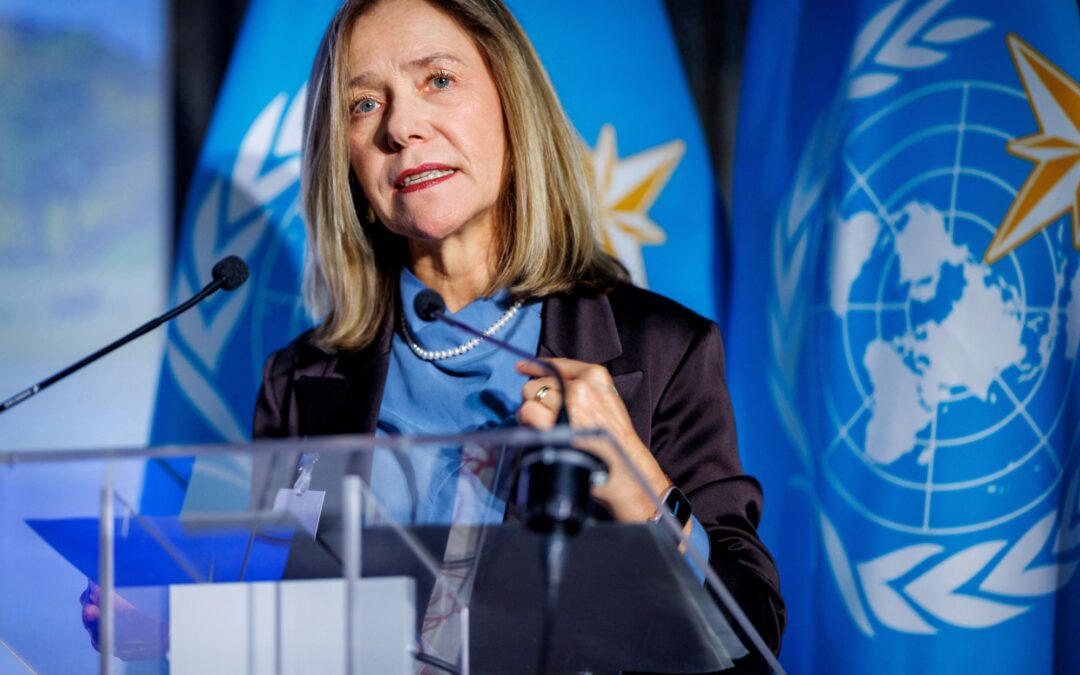
by Claire Doole | Nov 3, 2025 | Blog
From the time humans gathered around a fire, our minds have been drawn to stories. It’s instinct — the way our brains lean forward when a tale begins, eager to connect, to feel, and to imagine what comes next. Stories don’t just entertain us. They move us and inspire us.
I am always struck by it – rooms filled with overcomplicated PowerPoint slides and speakers piling on facts like bricks, rather than telling a good story whose emotional pull, if well told, we will always remember.
Below are three examples of good storytelling during an event that I hope will inspire you to tell more stories.
1) Stories on panels: At Geneva Peace Week, I helped the Women’s International League for Peace and Freedom design a panel where the speakers were asked to share their stories with the audience. The team created a space for the audience to think differently and listen deeply. People were shown to their seats by torchlight. They listened in darkness to an audio recording we created to mark an event in history, and then the moderator went on stage.
She turned on the light next to her and asked each speaker one by one to
turn on their side light and tell a 3-minute story before she moderated a
discussion. It was a STAR panel (something they will always remember).
2) Stories for the concluding panel: As a moderator, I know it can be challenging to keep the attention of the audience right to the end. A woman whom I have been training to moderate used storytelling to great effect at a recent international environmental conference. She told a story in her introduction and asked the audience to tell a story to their neighbour about something that had given them hope during the event. She then asked the panellists to do the same.
The story she told was made famous by the environmental activist, Wangari Maathai – Kenyan environmental activist and the first African woman to receive the Nobel Peace Prize. Wangari told the story of the hummingbird, which, in the face of a raging forest fire, did not despair but took action by carrying drops of water in its beak to put out the fire. She believed that everyone could make a difference, no matter how small their actions seemed. You can watch it here.
3) Stories in closing remarks: Wrapping up an event can be tricky — trying to distil hours of discussion into a few meaningful closing remarks. At an event I moderated last week, the Secretary General of the World Meteorological Organization, Celeste Saulo, chose a different path. Instead of listing key points, she told a story — one that conveyed why the world needs the WMO and resonated far more deeply with the investors in the room.
She told the story of Melissa, the category 5 tropical storm that hit Jamaica. “Melissa will break many records”, she said, “But the loss of life will be minimized thanks to international collaboration built on shared data and trusted systems.” You can see the full speech here – a great example of how to use stories to inspire and motivate.
(link https://wmo.int/content/closing-remarks-investors-forum)
A sought-after conference moderator, Claire helps clients design impactful events, trains in how to moderate and also in how to use stories to get your message across.
Photo courtesy of Marc Bader.
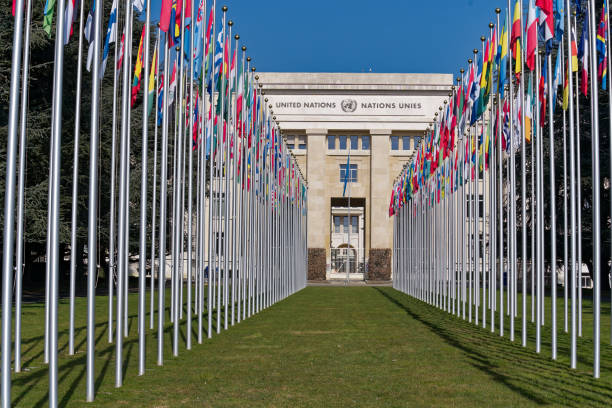
by Claire Doole | Sep 9, 2025 | Blog
Geneva brands itself as the humanitarian capital of the world. Its ecosystem of UN agencies, international organisations and NGOs contribute to what is known as “International Geneva”. Yet since the arrival of President Trump in the Oval Office, international Geneva has been facing an existential crisis.
Many of these organisations depend heavily on US funding – in some cases it accounts for up to 25% of their budget. On top of this European donors are shifting development budgets to military spending and the UN has itself launched an initiative – UN80 – to downsize in order to be more efficient.
In these uncertain times, leadership communication is more important than ever.
Heads of organisations are having to make tough decisions on the programmes they cut, the contracts they don’t renew and the people they fire. According to local media 30,000 jobs are expected to go.
In times of crisis the ways leaders communicate can determine whether people feel trust, clarity and resilience or confusion and fear. More generally if done well it can drive change and enhance performance. Successful leaders influence guide and inspire others towards a share goal.
It is not just what they say, but how they listen, connect, motivate and align their message with their actions.
I have coached and trained senior managers, directors and the C-suite in how to master leadership communication, based on many years’ experience as an international journalist and spokeswoman handling crises.
Below are some of the top tips in how to communicate to your team or at a Town Hall during a time of crisis or significant change:
1. Be transparent and honest – share what you know, what you don’t know and what you are doing to find out. Avoid sugarcoating as this can dent your credibility later on.
2. Communicate frequently – in a crisis, silence creates uncertainty so provide regular updates.
3. Show empathy – acknowledge fears and anxiety by using language that connects emotionally such as “I know this is difficult for many of you …”
4. Be clear and concise by focusing on the essentials of what people need to know, feel and do.
5. Summarise what you are going to do as leader and what you are going to ask the team to do.
6. Listen actively and respond respectfully to questions.
7. Provide a vision for the future even it is uncertain that talks to recovery, growth or adaptation
8. Align words with actions as if what you say and what you do are inconsistent, you will destroy trust. You need to walk the talk!
Claire Doole Communications runs leadership communications workshops and coaches senior leaders in how to communicate with purpose, clarity and connection.
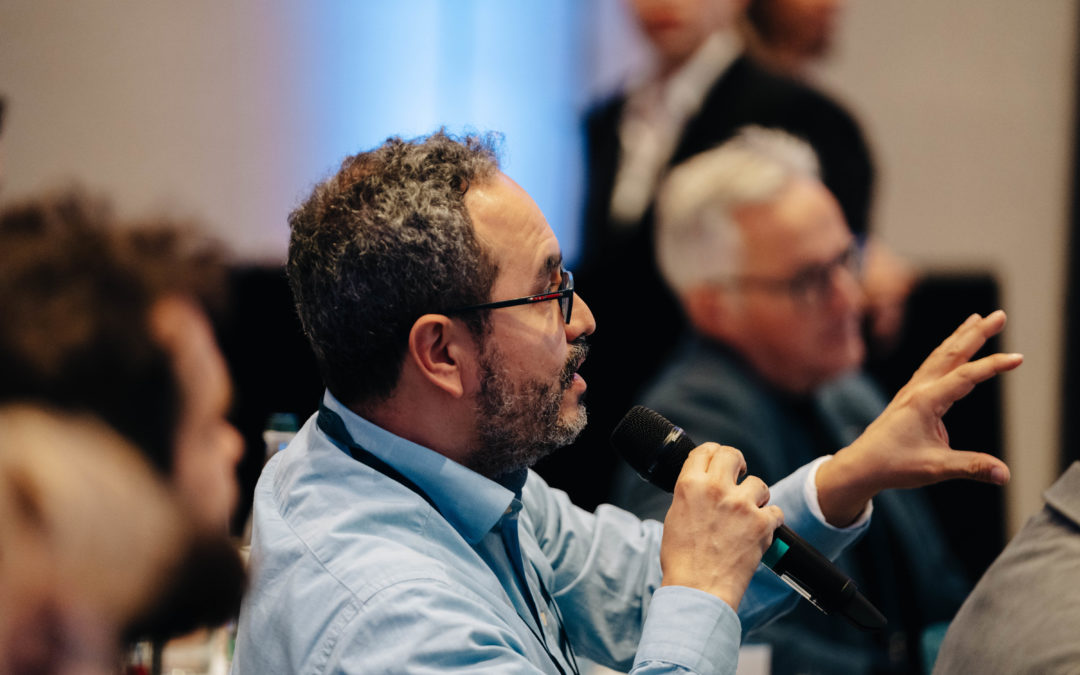
by Claire Doole | Jul 1, 2025 | Blog, Leadership Communications
In last month’s post, I shared some tips and techniques on the art of handling audience questions – whether you’re online, in-person, or in front of a tough crowd.
Now let’s take things a step further. What happens when the question is messy, hostile, or downright confusing? How do you respond when you’re caught off guard—or worse, when no one asks anything at all?
Below are some tips and techniques:
• Reframe convoluted questions: If a question is overly long, vague, or hard to follow, help your audience by tightening it up.
“I am sorry I can’t quite grasp every detail of your question, but I would like to respond to your part about X”
• Be clear when you don’t know the answer: You can’t have all the answers. Here are three options on what to say when you don’t have the answer:
i. Say ‘I don’t know’ – you’ll get back to them. Never, ever, guess.
ii. Ask someone in the audience to respond who is an expert on the subject.
iii. ‘I’m not 100% sure’ When you say this you’re not saying ‘I don’t know’, you’re saying ‘I’m not completely sure’, which is a totally different thing.
• Answering challenging questions: When faced with a challenging question from that angry staff member, board member or at an official hearing – you need to employ the ABC technique I teach in media training – acknowledge the question, potentially reframing it before you bridge to a broader point you want to make – moving from the specific to the general.
• Group multiple questions by theme: One client of mine has to answer up to twenty different questions, including sub-questions on at least five different topics or different aspects of one topic every time she appears in front of a parliamentary hearing in less than five minutes!
She groups the questions under themes and then answers any miscellaneous questions. She even manages to acknowledge some of the MEPs by name. This takes practice and skill.
• Answer questions individually if possible: It is much easier for you to answer questions one by one as you won’t forget them, and it helps the audience too, who can lose track if you answer multiple questions in one go.
• Have a process for taking online questions: When I moderate online press briefings or panel discussions, I also group the questions that flood in from journalists thematically. However, I signpost clearly which question is for which speaker and ask them one by one.
I also like to have a google doc where the event producer can copy and paste the questions as they come in on the chat. They can tweak the English and prioritize the question, even suggesting which question goes to which speaker. This makes it easy for me to group by theme, and ensure that each speaker gets at least one question.
What happens if you don’t get any questions?
It happens. Avoid the temptation to fill the silence. Wait. Some people are nervous about asking questions in public.
Alternatively, ask a question yourself – “A question I’m often asked is…” or “Before I began, someone asked me…”
You can also have someone lined up to ask the first question, or you can ask people to turn to their neighbor to reflect on what the presenter has said and see if they have any questions. As a moderator, I used this technique once, and it worked a treat!
Remember, Q&A isn’t a test – it’s a conversation. Whether you’re dealing with a chatty audience, a sceptical stakeholder, or radio silence, these strategies can help you keep the dialogue meaningful, honest, and engaging.
Claire Doole is a former BBC journalist, UN, IFRC and WWF International spokeswoman who has for more than twenty years trained and coached executives in the art of answering tough questions from the media, employees or the public. You can find out more at www.doolecommunications.com

by Claire Doole | Jun 11, 2025 | Blog, Public Speaking
For some presenters, the Q&A is the best part of any speaking engagement. They are more at ease, enjoy the exchange and sharing knowledge.
But for others, the question-and-answer segment can be extremely testing even for the most seasoned presenter. Here are a few challenges:
• Online events: Questions pour in via the chat, leaving the presenter frantically scrolling up and down to find the pertinent questions.
• External events or conferences: When audience members seize the opportunity to talk about their organization or experience, rather than ask a question to the presenter. (As a panel moderator, a comment rather than a question from audiences is an occupational hazard!).
• Town halls: When the presenter/speaker is faced with a challenging staff member, keen to ask that killer question.
• Formal meetings or hearings: The presenter is required to answer many questions in a fixed amount of time, often from members who ask multiple questions on a wide variety of subjects.
Having faced all of the above – as a panel moderator and presentation trainer here are some techniques for staying calm and focused when the questions start flying.
• Anticipate the difficult questions: When preparing your presentation or remarks, think about your audience and the specific challenging questions you could expect from them.
• Set the rules of engagement: Let the audience know that you want questions, not comments. If an audience member goes into a long speech, you can then legitimately ask them what their question is. (As a panel moderator I intervene on behalf of the audience when a questioner goes into comment mode!)
• Listen carefully to the question and seek clarification if you don’t understand it: As the presenter, you have to make sure that not only you but also the audience understands what is being asked.
• Have a process for taking online questions: When I moderate online press briefings or panel discussions, I also group the questions that flood in from journalists thematically. However, I signpost clearly which question is for which speaker and ask them one by one.
I also like to have a google doc where the event producer can copy and paste the questions as they come in on the chat. They can tweak the English and prioritize the question, even suggesting which question goes to which speaker. This makes it easy for me to group by theme, and ensure that each speaker gets at least one question.
Next month I shall share more tips on answering tough questions, whether they come at a town hall, conference or public hearing.
Claire Doole is a former BBC journalist, UN, IFRC and WWF International spokeswoman who has for more than twenty years trained and coached executives in the art of answering tough questions from the media, employees or the public. You can find out more at www.doolecommunications.com

